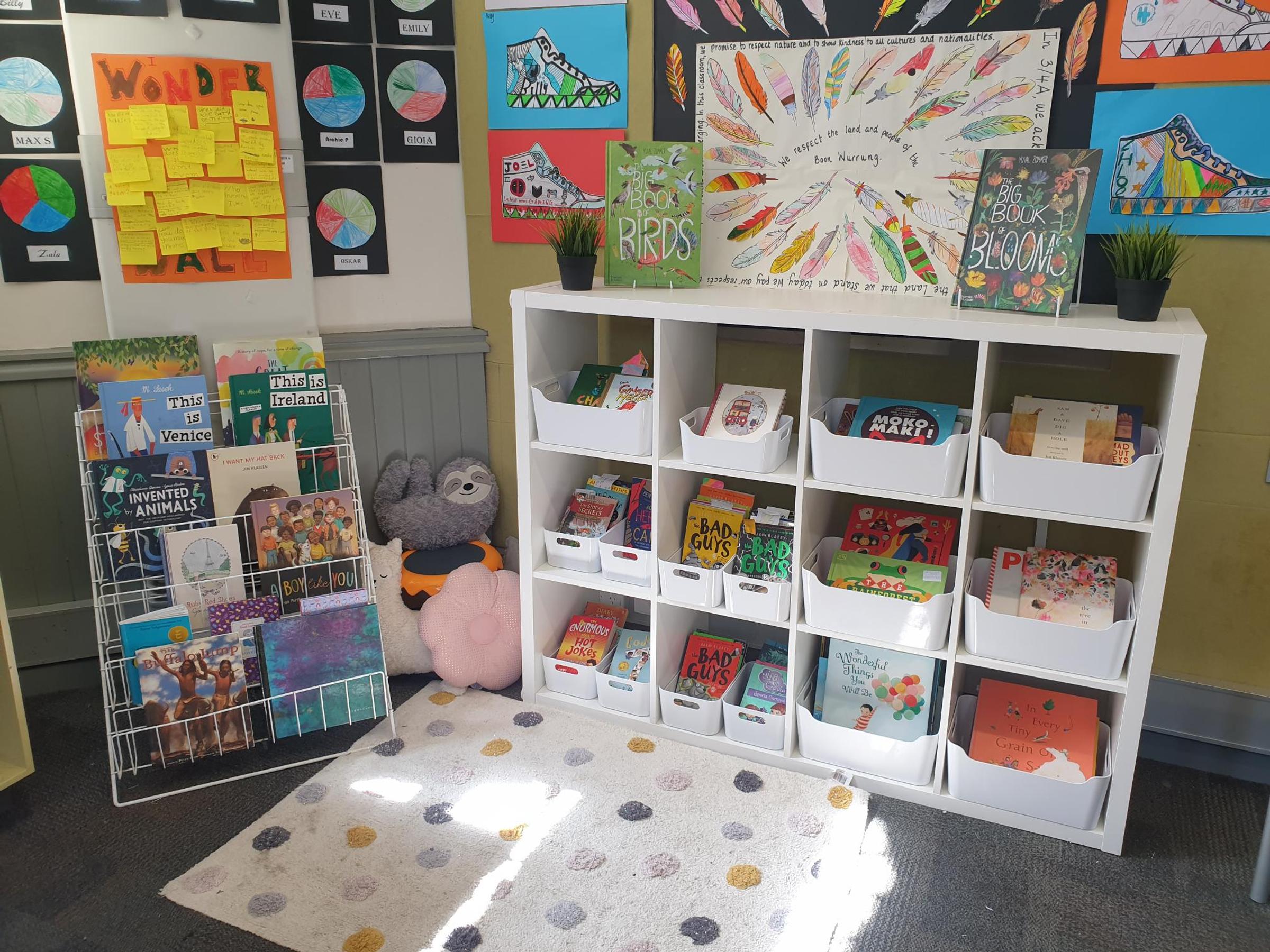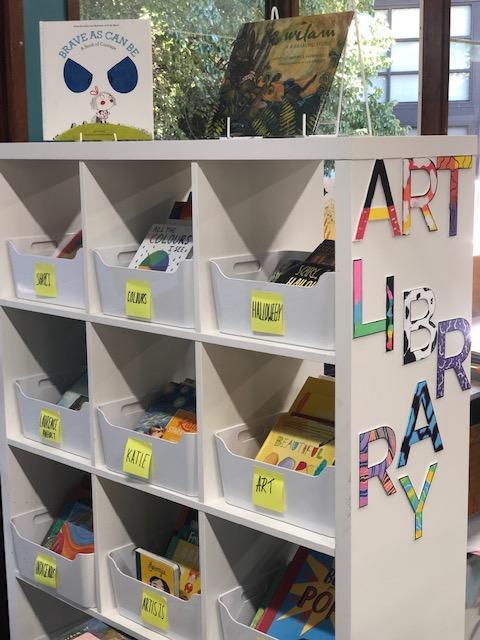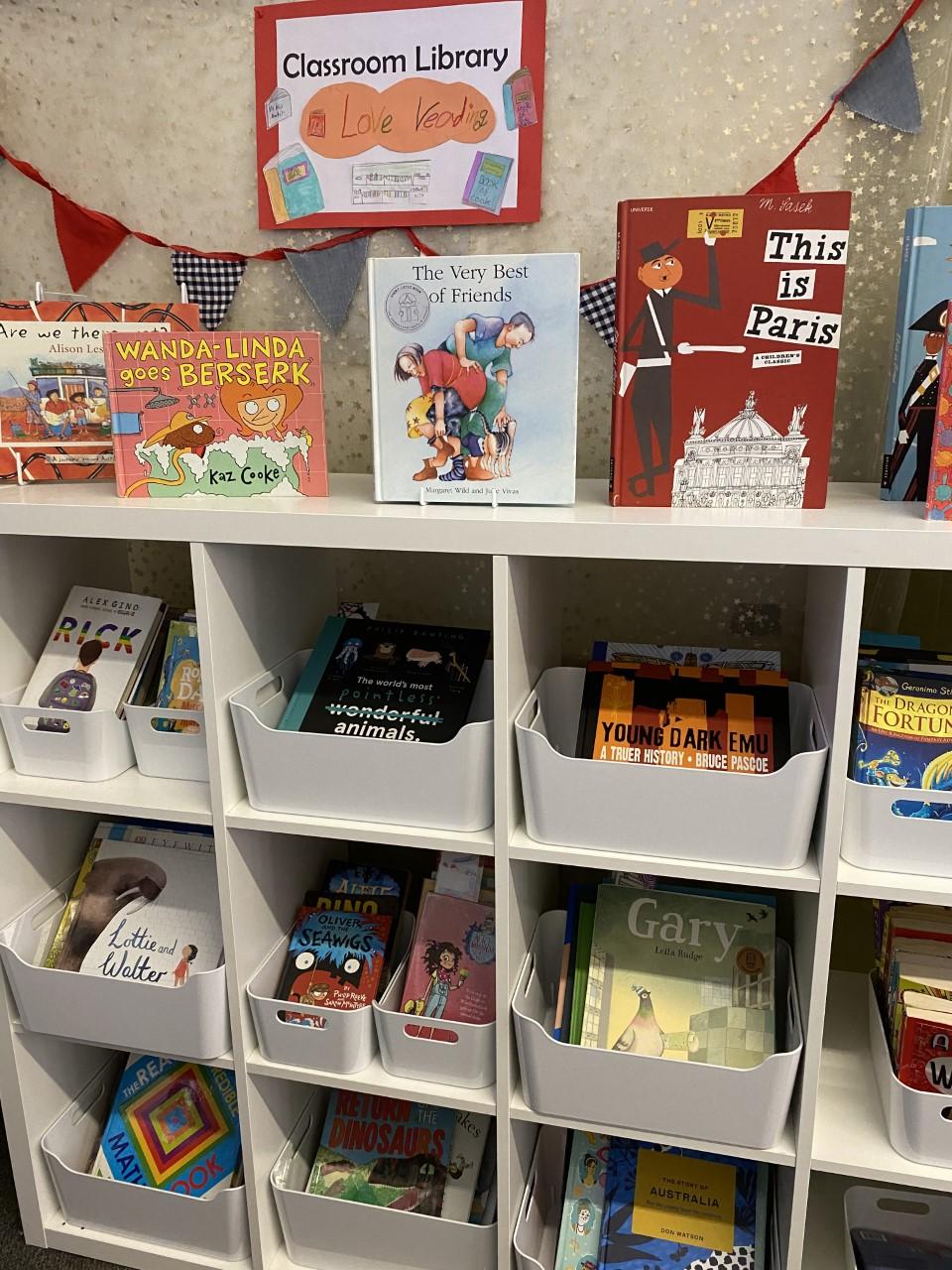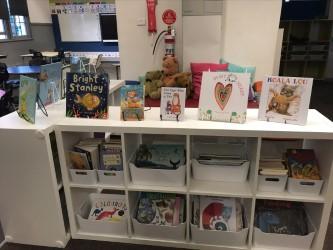We are celebrating Education Week at St. Kilda Park Primary School. After 2 years of lockdowns, this is the perfect opportunity to invite parents and carers into our classrooms to see our wonderful new Classroom Libraries and take some time to sit with your child/children and share one or two of the fabulous texts that we have.
WHEN: Tuesday, May 24
Foundation, Year 1 & 2 from 9am – 9.30am
Years 3-6 from 3pm – 3.30pm
WHERE: In your child’s classroom
The students will do a brief introduction to share how we are utilising our wonderful new resources and then you can enjoy some quiet time together sharing some of our new books. Relish in the rich literature and enjoy letting your child read to or with you.
We understand that not everyone will be able to make it on this day. If you are unable to visit on the scheduled day, please know that we will pair all students up with an adult so they can participate in the moment.
Why Are Classroom Libraries Important? What Does The Research Say?
Here is what research has to say about classroom libraries:
- Equitable access to books promotes reading achievement and motivation (National Council of Teachers of English Executive Committee, 2017).
- “Providing access to high-quality, diverse books and content” was recently listed as one of the top five most critical topics for improving literacy outcomes in the next decade, as revealed in the International Literacy Association’s 2020 What’s Hot in Literacy Report.
- The quality and range of books to which students are exposed (e.g., electronic texts, levelled books, student/teacher published work) has a strong relationship with students’ reading comprehension (e.g., Hoffman, Sailors, Duffy, & Beretvas, 2004).
- Students in higher-achieving schools had more books in classroom library collections than students in lower-achieving schools (Allington, 2012; Duke, 2000).
- Classroom libraries significantly improve student motivation and engagement towards reading as well as student reading habits. (Yi et al., 2018).
- Students in classes with classroom libraries borrow more and read more. (Yi et al., 2018; Allington, 2012).
- Students who read widely and frequently are higher achievers than students who read rarely and narrowly (Guthrie, 2004; Atwell, 2007). (In fact, Guthrie found that the ‘engaged readers’ in his study actually spent 500% more time reading than the ‘disengaged readers’.)






